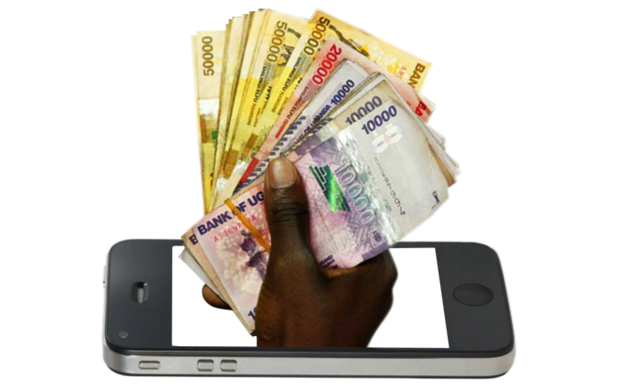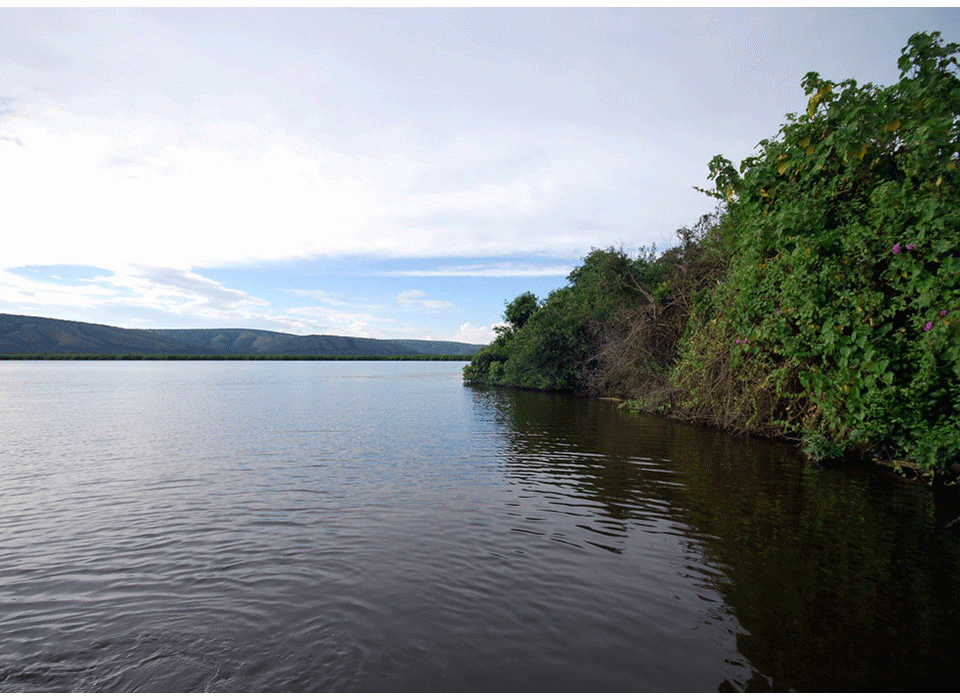
What currency is used in Uganda?
November 6, 2025
How Strong Is Wi-Fi in Lodges?
November 6, 2025Can I use mobile money while traveling?
Traveling in Africa, especially in countries like Uganda, Kenya, and Tanzania, is considerably different from what it was ten years ago. Gone are the days of carrying wads of cash to buy goods and services in far-flung areas. Mobile money has changed the way people handle their financial transactions, making it easier, faster, and safer to send and receive money, even in most rural areas of the continent. But for travelers visiting Uganda or other East African economies for the first time, there’s probably one question: Can I use mobile money while traveling?
The short answer is yes, but with some limitations, depending on your nationality, your mobile network provider, and how you set up your account. In this detailed guide, we shall look at how mobile money works, how travellers can use it in Uganda and other countries, and some practical tips to make your trip smoother and more secure.
What is Mobile Money?
Mobile money is a digital financial service that allows users to store, send, and receive money using a mobile phone instead of a traditional bank account. It’s powered by mobile network providers and operates through a simple interface of SIM card registration and mobile wallet applications.
Developed to make banking accessible to rural populations without bank accounts, mobile money has become a cornerstone of financial life in East Africa. Today, it’s used for everything from paying bills, buying groceries, and sending remittances to paying for taxis, park fees, and even safaris.
Mobile money services in Uganda are predominantly offered by MTN Mobile Money and Airtel Money. Both companies maintain an extensive network across the country, thereby connecting millions of users from major urban centers like Kampala and Entebbe to rural towns near Bwindi or Murchison Falls.
How Mobile Money Works
The idea of mobile money is simple. Each registered user has an account tied to his or her phone number. Money can be loaded into this account, called a “wallet,” by visiting one of many mobile money agents or through a bank transfer. Money loaded into the wallet enables users to transact directly from their phone-even without internet access.
Common mobile money functions include:
Sending or receiving money from another user
Withdrawing cash from authorized agents
Paying utility bills or school fees
Buying airtime or data bundles
Paying for goods and services (restaurants, taxis, tour companies, etc.)
Transfer to a bank account
The system is secure, and the transactions are both PIN-protected and confirmed via text messages.
Can Tourists Use Mobile Money in Uganda?
Yes, travelers visiting Uganda can use mobile money, but with a few key considerations: you’ll have to register for a local SIM card and meet identification requirements before the service is available to you.
Step 1: Obtain a Local SIM Card
First, one has to purchase a SIM card from one of the main network providers, which is usually MTN Uganda or Airtel Uganda. One can get SIM cards from airports, shopping malls, or mobile service centres.
To register, you will need to provide:
Your passport for identification
Visa or entry stamp (to confirm legal stay)
Sometimes a passport photo, though this is usually taken on-site
Once registered, the agent will activate your SIM card, getting it ready for voice, data, and mobile money use.
Step 2: Register for Mobile Money
Once you get your SIM card, just request that the agent activate the mobile money service on your line. You receive a confirmation text message after activation, followed by another prompt to create a four-digit PIN code for performing transactions.
Once active, you can start loading money onto your account. Just do this at any mobile money agent outlet, small kiosks or shops displaying the MTN or Airtel logo: you hand cash to the agent, who then deposits the equivalent amount into your wallet.
Step 3: Start Using It
You can now use your phone to pay for services, buy airtime, or send money to other users; it works through USSD codes, so you don’t even need mobile internet. An example is MTN Uganda, which uses the code *165#, while Airtel uses *185#.
What You Can Pay for Using Mobile Money
Once registered, mobile money is one of the easiest ways to handle day-to-day expenses. In Uganda, especially, most businesses dealing with or catering to tourists accept mobile money.
With mobile money, you can:
Pay for domestic flights or bus tickets
Pay your tour balance to a local safari company
Buy SIM data or airtime
Pay bills at restaurants, cafes, and shops especially in Kampala and Entebbe.
Tip drivers or guides-many of whom have registered wallets
Buy souvenirs at craft markets that accept mobile money.
You will find that, even in much smaller towns or countryside areas near national parks, the need for physical cash is completely avoided, with locals opting for mobile means of payment.
Benefits of Using Mobile Money While Traveling
1. Safety and Security
Mobile money reduces the need to carry large sums of cash, which can be quite risky while traveling. Your money is safe on your phone wallet and protected by your unique PIN code. Even if your phone is misplaced, your funds stay safe and can be recovered when you replace your SIM card.
2. Convenience
You can pay for nearly everything directly from your phone, saving time and eliminating long trips searching for ATMs or forex bureaus. This is very helpful, especially where card machines are not available or when internet connectivity is unreliable.
3. Accessibility
The mobile money network is incredibly wide in Uganda. You will find them in almost every town and village, and they are even found near national parks such as Queen Elizabeth, Kibale, and Bwindi. This accessibility makes it easy to load or withdraw funds as needed.
4. Low Transaction Fees
Sending and receiving money using mobile money in Uganda is relatively cheap: most transactions cost less than UGX 1,000 to 3,000, approximately USD $0.25 to $0.80, depending on the amount.
5. Cash Withdrawal Options
Need physical cash? No problem, just walk up to any mobile money agent and withdraw cash directly from your phone wallet. It takes less than a minute.
6. Supports Local Businesses
Mobile money contributes to the advancement of Uganda’s digital economy and directly supports the small local vendors who rely on it as their main source of payment.
Limitations for Foreign Travelers
While mobile money is incredibly useful, there are some challenges for visitors from abroad to be aware of.
1. Registration Requirements
The Ugandan mobile money systems require national identification or passport verification for SIM registration. As some agents may be unsure of how to register a foreigner, it is best to visit an official service centre of MTN or Airtel.
2. Cross-Border Transfers
International transfers between mobile money networks in different countries are limited. You can’t transfer, say, funds from an MTN account in Uganda to one in Kenya easily without using intermediary services such as WorldRemit or Western Union Mobile Transfer.
3. Transaction Limits
Daily transaction limits apply to prevent fraud. Using your account, for instance, you can send or withdraw up to UGX 7 million (approximately USD $1,800) per day, depending on your account level.
4. Network coverage in remote areas
While Uganda has quite expansive mobile coverage, the deep forest areas of Bwindi or some parts of Kidepo Valley may have weaker signal strength. It is advisable to handle transactions before heading into these zones.
5. Foreign Exchange Restrictions
All mobile money accounts operate in Ugandan shillings only; therefore, if the deposit is done using USD or EUR, this will need to be changed into local currency first before loading into the wallet.
Alternatives for International Travelers
If setting up mobile money seems complex, there are other digital ways to manage your money while traveling in Uganda:
Credit and Debit Cards: Accepted at major hotels, lodges, and tour companies. Visa and Mastercard preferred.
ATMs: Available in cities and large towns, allowing for cash withdrawals.
Online Transfers: Through international applications, such as WorldRemit, Wise, or Remitly, one can transfer cash directly to local accounts or mobile wallets.
Some travelers also find it convenient to make arrangements for mobile payments through a local tour operator, who can handle bills on their behalf and settle accounts using local mobile money platforms.
Tips to safely use mobile money:
Keep your PIN private; never let anybody know it, not even the mobile money agents.
Use Only Trusted Agents: Always transact with agents in official kiosks that have registered MTN or Airtel branding.
Check Balances After Transactions: Confirm your payment went through by checking your account balance and receipt message.
Beware of Scams: Disregard messages asking you to send on codes or transfers to numbers you don’t know.
Keep Your SIM Card Secure: In case of loss, report to the mobile company without any delay and get a replacement.
Why Mobile Money Makes Travel Easier in Uganda This is especially true of tourists who spend a large quantity of time in Uganda. Mobile money has become an indispensible tool for a tourist, particularly budget travelers, volunteers, researchers, and digital nomads staying several weeks or months in the country, by being able to efficiently manage everyday transactions and connect financially with local communities. Tourists find it convenient when paying local guides, buying fuel during self-drive safaris, or settling small bills at local shops. Combined with traditional cash and card payments, mobile money gives you the flexibility to travel anywhere in Uganda without worrying about being stranded without access to funds.
So, can you use mobile money while traveling?
Absolutely — and in Uganda it’s one of the most practical tools you can have. Once registered, you will find it simple, secure, and incredibly convenient for everyday use. Whether you are paying for a boat trip on the Nile, tipping your safari guide, or buying souvenirs in a local market, mobile money is part of keeping you connected financially wherever your adventures take you. To make this even smoother, it is best to travel with a reliable local expert who understands the systems of the country.
Experiya Tour Company is among the most trusted tour operators in Uganda, offering tailor-made safaris and travel packages integrated with modern payment options, inclusive of mobile money. They can help you explore Uganda confidently, from its remote wilderness parks to bustling cities, knowing that every process of your journey, including the one involving payments, is professionally and securely handled.




